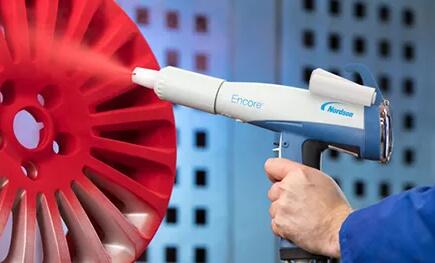Sep. 11, 2023
Mechanical Parts & Fabrication Services
Surface finishing is a crucial step in the manufacturing and production of various products across industries. It involves a series of techniques and processes aimed at enhancing the appearance, functionality, and durability of materials and products. The surface finishing process is highly diverse, encompassing a wide range of methods to achieve specific desired results. In this article, we will explore what the surface finishing process includes and its significance in different industries.
Cleaning and Preparation
Before any surface finishing can take place, the material or product must be thoroughly cleaned and prepared. This initial step involves removing contaminants such as dirt, grease, rust, and old coatings. Cleaning methods can vary depending on the material and the type of surface finishing to be applied. Common cleaning techniques include abrasive blasting, solvent cleaning, and chemical treatments.
Abrasive Blasting
Abrasive blasting is a process that uses abrasive materials, such as sand or steel shot, to remove surface contaminants and create a desired texture or finish. This method is often used for metals, ceramics, and composites. Abrasive blasting can achieve various finishes, from a smooth, polished surface to a rough, textured one, depending on the choice of abrasive material and pressure.
Polishing and Buffing
Polishing and buffing are surface finishing techniques that are primarily used to achieve a smooth and reflective surface on materials like metals, plastics, and glass. These processes involve the use of abrasive compounds and polishing wheels to remove imperfections and create a high-gloss finish. They are commonly employed in the production of jewelry, automotive parts, and decorative items.

Plating and Coating
Plating and coating are surface finishing methods that involve the application of a thin layer of a different material onto the surface of the base material. Plating typically uses metals like chrome, nickel, or gold to provide corrosion resistance and improve the appearance of products. Coating, on the other hand, can involve paints, enamels, or powder coatings to add color, protection, or special properties to a surface.
Anodizing
Anodizing is a specific surface finishing process mainly used on aluminum and its alloys. It involves creating a controlled oxide layer on the surface of the material through an electrochemical process. Anodizing not only enhances the corrosion resistance of aluminum but also allows for the introduction of color and improved adhesion of dyes or paints.
Heat Treatment
Heat treatment is a surface finishing method that involves subjecting materials to controlled heating and cooling processes. It is often used to alter the mechanical properties of materials, such as hardness, strength, and toughness. Common heat treatment processes include annealing, quenching, and tempering. Heat treatment is crucial in the manufacturing of tools, gears, and various mechanical components.
Electropolishing
Electropolishing is a surface finishing process that uses an electrochemical solution to remove a thin layer of material from the surface of a metal object. This method is employed to improve the smoothness, brightness, and cleanliness of metal surfaces. Electropolishing is commonly used in the medical, pharmaceutical, and food industries to ensure the sanitary and corrosion-resistant properties of stainless steel equipment.
Conclusion
In conclusion, the surface finishing process encompasses a wide array of techniques and methods aimed at enhancing the quality, appearance, and functionality of materials and products. Whether it's creating a mirror-like finish on a piece of jewelry or improving the corrosion resistance of industrial components, surface finishing plays a vital role in numerous industries. Understanding the various methods and their applications is essential for manufacturers and designers looking to produce high-quality products that meet both aesthetic and functional requirements.
If you are interested in sending in a Guest Blogger Submission,welcome to write for us!
All Comments ( 0 )